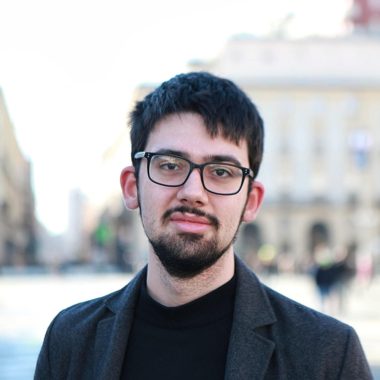This is a question that may sound meaningless, but it is not so for Swedish (or Scandinavian as well) handling of the pandemic.
Since the beginning of the outbreak, Sweden has not imposed any lockdown as well as any mandatory mask-wearing, which is why roughly 84.7% of people do not do it at all, according to the german site Statista.
Even if this kind of herd immunity strategy has been based on the opinion of the local Public Health Agency, there are lots of other immaterial reasons behind these choices, which have been striking in a country which has the 3rd highest death toll per capita in Europe.
First of all, no one in Sweden wanted to stop the economy, which is not only work for Swedes, but it is the most important source of self-confidence, thanks to the Lutheran and Calvinist idea of predestination, which is very diffused there thanks to centuries of Protestantism.
The predestination theory stresses how men are not able to determine their life path, as everything has been already decided by God, who knows who has to be saved from sin and who doesn’t. Since only God knows, the best that an average person can do is work hard, make money and hope for the best (after death).
So, imagine how hard it could possibly be for the Swedish people to stop working because of a lockdown. The idea of destiny is so deeply a part of the collective consciousness that it cannot be ignored.
This is a very capitalist belief, but Protestantism and Capitalism are very strongly intertwined, as German philosopher Max Weber argued in The Protestant Ethic and the Spirit of Capitalism (1905).
Besides, believing that everything is predetermined has favoured a freedom-loving mentality, where the single person triumphs over the community, as in personal success one may find God.
Following the latest progress of Swedish society, this prompted an open-minded attitude towards LGBT and immigrants’ rights, but it also pushed the nation to be way more individualist and liberalist.
That is why Swedes, and Norwegians as well, are not used to obey any authority. Even their monarchy is more a symbol than a powerful institution. They love democracy, hating impositions of any kind, even if reasonably imposed because of an health emergency.
This sort of democratic idea is directly linked to the “universal priesthood” preached by Martin Luther five centuries ago
Thus, if Sweden stopped being Catholic a half-millennia ago in order to achieve independence from Rome’s Vatican, we can barely believe today it would obey anyone but its national consciousness, even if this is not healthy or reasonable as well.
However it’s difficult to believe that Swedish people have no doubts about their way to handle the outbreak, but yet data about masks reveals how only the 5.7% of people, there, are against government laissez-faire strategy about face-covering.
Maybe this massive lack of mask-wearing or containment measures is due to the idea that the Swedish nation is already saved by God, as it shows all the “symptoms” of a good predestination, as last year the country was ranked 8th in the list of countries by Human Development Index (for comparison USA was 15th together with UK), while it was 12th in the List of nations by GDP per capita.
With destiny smiling, there’s no reason for a Swede to believe anything is getting worse, because even if this happens, the Nordic Protestant fatalism will justify it as not a human fault.
Of course Swedish and Nordic protestantism is very different from the others, as in the Protestant Germany 82.2% of people wears always or frequently a mask, but such a religious confession is an appropriate key to understand why such a rich and famous country developed an own way to cope with an international disease which has caused so much death and is still doing so.
We can barely afford to ignore the reasons for the Swedish methodology, as in a globalized scenario every country is deeply intertwined with the others and the stand one country takes may have aftermaths in a country distant miles away.
Even if we are not supposed to know if this would be or not God’s plan, knowing how religion still influences political choices even in very progressive countries may be helpful to face the same issues in our own motherland.
Sweden’s weak handling of the pandemic is not caused by ignorance, as for many COVID deniers, but it is based on the entire cultural and religious legacy of the country, which is not meant to change its mind, proving how traditional common sense is still the key of every political attitude, even in the alleged most rational age of the human being.
Author
-

Dario Pio Muccilli is the Star-Revue’s Italian correspondent, based in Turin. Email him at muccillidariopio@gmail.com
View all posts
Dario Pio Muccilli is the Star-Revue’s Italian correspondent, based in Turin. Email him at muccillidariopio@gmail.com










